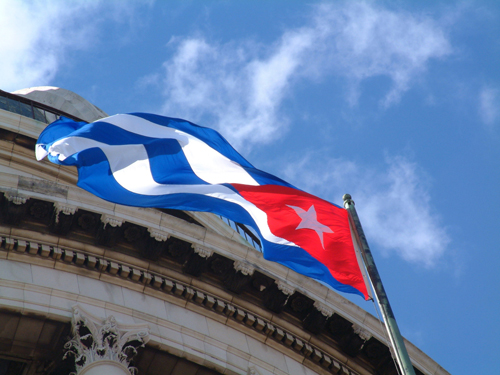
Religious freedom advocates say the death of Cuba’s revolutionary leader Fidel Castro will not reduce pressures on Christian churches. The World Watch Monitor (with DAVID ADAMS) reports…
World Watch Monitor (with DAVID ADAMS)
The death of Cuba’s revolutionary leader Fidel Castro will not reduce the harassment and surveillance to which the church is already subjected, an analyst at the charity Open Doors has warned.
Following Castro’s death at the age of 90 on 26 November, Paul Groen told World Watch Monitor: “Fidel’s regime really has been a huge source of suffering for the church,” referring to the communist rule instigated by Castro and other revolutionaries in 1959 and continued by Fidel’s brother Raul since 2006.

WHAT FUTURE? The death of Fidel Castro is not expected to improve the situation for the nation’s Christians. PICTURE: www.freeimages.com
“Many leaders don’t expect any immediate change. Raúl Castro will continue governing the way his brother did. This means that the restrictions on the church that existed before Fidel’s death are likely to be maintained, at least until the elections in 2018 when Raúl, who will then be 87, has said he will resign as president.”
– Open Doors analyst Paul Groen
“Many leaders don’t expect any immediate change. Raúl Castro will continue governing the way his brother did. This means that the restrictions on the church that existed before Fidel’s death are likely to be maintained, at least until the elections in 2018 when Raúl, who will then be 87, has said he will resign as president.”
Cuban church leaders chose not to comment publically on Castro’s death. The Catholic bishops’ conference in Havana issued a brief and carefully worded statement expressing “our condolences to his family and the authorities of the country”, entrusting the communist leader to Christ, “the Lord of Life and History”, and praying “that nothing would disrupt the coexistence among Cubans”.
“Christians in Cuba face harassment, surveillance, discrimination and the occasional imprisonment of leaders,” said Mr Groen. “New churches and seminaries cannot be built, and foreigners may enter the country with no more than three Bibles.”
Aid work carried out by the church is also subject to government control. Officials have demanded that some churches hand over donated goods, such as food and building materials that they were distributing to people whose homes were destroyed or damaged by Hurricane Matthew in October. Church leaders said officials believed the state should be responsible for the material needs of the people. Nonetheless, they acknowledged that there has been an improvement in the government’s treatment of the church over the last two decades, and pointed out that Christians are no longer subject to beatings, imprisonment and even murder that terrorised the church in previous decades.
President Raúl Castro’s effort to have more contact with the Catholic Church has strengthened its public role, and Fidel openly expressed his admiration of Pope Francis, the first Latin American pope and an outspoken critic of economic inequality. Pope Francis has visited the island twice since his election, once for a long-awaited meeting with the Russian Orthodox Patriarch, Kirill.
One church leader explained how the experience of the regime had affected the Church in Cuba. He said: “We learned to patiently put up with life’s afflictions. We learned to forgive. We learned to love our enemies. We learned to live through our faith. We learned to live without human defence. We learned to know the power of God in supplying what we need, health for our bodies, providing this sense of fulfilment, peace in the eye of the storm. We learned the most important lesson of a believer about the earth, which is knowing that God is the only being that we need.”
But Mr Groen said local church leaders are concerned about what might eventually replace the communist regime, which for decades has been isolated by the US trade embargo. He said they are concerned that materialism and other Western values might flood the island if it opens up to more international trade.
Meanwhile, Mervyn Thomas, the chief executive of UK-based religious freedom advocacy Christian Solidarity Worldwide, told Premier News following Fidel Castro’s death that his prayer “is that the country will take stock and deliver really religious freedom and religious rights to every person in the population, every citizen of Cuba at this time”.
Mr Thomas said that religious freedom had not improved under current President Raúl Castro. “Things have not improved, in fact in some respects over the last couple of years it seems to have got worse,” he said. “But whether this will be an opportunity for people in the country to have more of a say, I really don’t know, we’ll just have to wait and see.”
In January this year, CSW reported that an unprecedented crackdown on churches in Cuba last year had fuelled a spike in reported violations of freedom of religion or belief with figures collected by the organisation showing a 10-fold increase in violations – 2,300 separate incidents in 2015 compared to just 220 in 2014. The organisation said the spike was largely due to a government declaration that 2,000 Assemblies of God churches were illegal and ordered the closure or demolition of 100 AoG churches in three provinces as well as the seizure of properties belonging to a number of other denominations.





